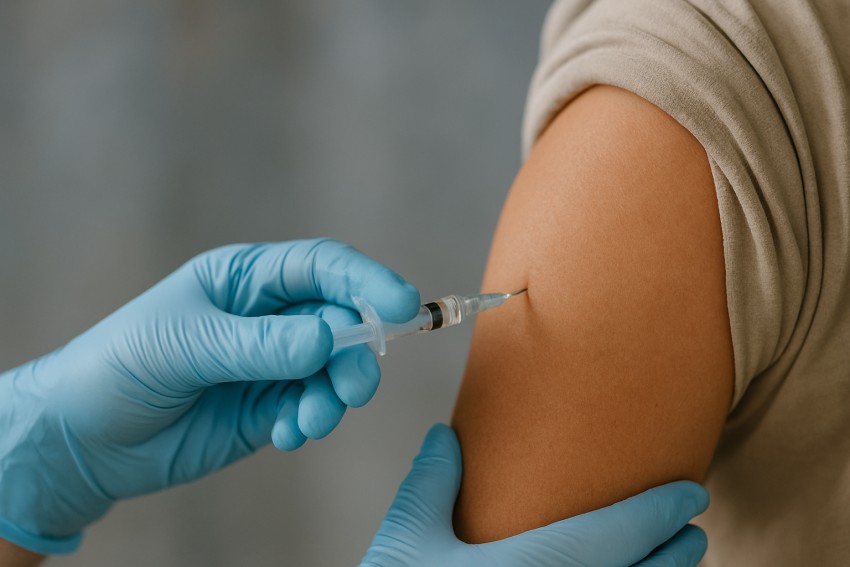It is well known that the best way to prevent an infection is through prevention itself. In addition to using condoms, taking PrEP and undergoing frequent screening for sexually transmitted infections (STIs), there are also certain vaccines available.
Currently, vaccines are approved against Hepatitis A and B, against some strains of Human Papillomavirus (HPV), and against the monkeypox virus.
Hepatitis A Virus (HAV) Vaccine
The HAV vaccine is recommended for:
- Sex workers
- Men who have sex with men
- People who practise oral–anal sex
- People who inject drugs
For individuals without immune system problems, the vaccination schedule is two doses at 0 and 6 months. For those with low lymphocyte counts (such as some people living with HIV), a 3-dose schedule at 0, 1 and 6 months may be recommended. In some cases, a booster dose is advised at 10 years.
Hepatitis B Virus (HBV) Vaccine
HBV vaccination is included in the immunisation schedules in all autonomous communities in Spain. Anyone born from 2004 onwards, if they have completed their routine vaccination schedule, should assume they are vaccinated; and from approximately 1981–1986, almost the entire population in Spain received vaccination, although there are some gaps depending on the region.
To be certain, you can check your personal vaccination record or, in exceptional cases, confirm it by testing anti-HBs antibodies.
In addition to infant vaccination, HBV vaccination is currently recommended for:
- Unvaccinated individuals under 18
- Men who have sex with men
- People with multiple sexual partners
- People who inject drugs
- Close contact with someone who is HBsAg-positive
- People with HIV or HCV
- People with chronic liver disease
- Transplant recipients and recipients of blood products
- Healthcare workers with occupational risk
The standard schedule is 3 doses at 0, 1 and 6 months.
At present, studies do not recommend routine serological follow-up after vaccination, as it has been observed that even when anti-HBs antibodies are not detectable (the antibodies induced by vaccination), immune memory persists and protection remains.
If, for other reasons, serology is performed and shows no positive anti-HBs, booster doses may be considered, particularly in people at high risk of infection.
However, assessing vaccine response and administering boosters is recommended for people living with HIV, individuals with significant immunosuppression and people on haemodialysis.
Human Papillomavirus (HPV) Vaccine
HPV vaccination has been offered across Spain since 2008, initially to girls born in 1994–95. Since then, it has been included in vaccination schedules for all girls aged 12.
Vaccination for boys began gradually in 2022, and by 2025 it is included in all regional schedules for both boys and girls aged 12.
Anyone who has not been vaccinated by age 18 can also receive the vaccine through the national health system.
Some autonomous communities include additional recommendations:
- Men who have sex with men (under 45)
- People engaged in sex work
- People living with HIV
- Women with high-grade cervical intraepithelial lesions
- People with WHIM syndrome
- Transplant recipients and recipients of blood products
In general, anyone who is sexually active is exposed to HPV. Although universal vaccination is not yet included for all individuals, increasing evidence supports universal vaccination.
For now, anyone not defined as a risk group in their regional schedule who wishes to be vaccinated may need to do so privately.
The schedule varies by risk condition: one dose; two doses (0 and ≥6 months); or three doses (0, 1–2 and ≥6 months), with the 3-dose schedule being the most widely used.
Vaccination against Monkeypox (Mpox)
Following the global outbreak in 2022, a vaccination strategy was approved with two vaccines originally designed for smallpox, which have shown protection against mpox.
Vaccination is recommended both as pre-exposure prophylaxis (PrEPx) and post-exposure prophylaxis (PEP):
Pre-exposure prophylaxis (PrEPx):
People who engage in unprotected sexual practices, especially men who have sex with men
People with possible occupational risk (sexual health/HIV staff, laboratory personnel, staff responsible for disinfecting venues where sexual activity occurs, etc.)
Post-exposure prophylaxis (PEP)
Close contacts of someone with mpox within the first 4 days after exposure is ideal, but it can be given up to 14 days if no symptoms develop. A second dose may be offered to individuals with high-risk sexual practices.
Other STI-related vaccinations under study
Against Gonorrhoea
The meningococcal B vaccine has begun to be used in the United Kingdom for people at risk of acquiring gonorrhoea.
In Spain, meningococcal B vaccination was added to the schedule in 2023 and is administered only to infants.
The UK decision was based on studies showing a reduction in gonorrhoea incidence among vaccinated individuals. As a result, coverage may expand in Spain in the future.
Against Herpes
Multiple studies have been conducted, but results have been limited. It remains unclear whether the immune system can be effectively primed against herpes simplex virus, making vaccine development difficult.
Currently, no vaccine is available.
Conclusion
Vaccination is a highly effective additional tool in the fight against STIs—alongside condom use, taking PrEP, and undergoing regular testing when engaging in unprotected sexual activity.
Most vaccines are available free of charge through public health services. However, if you prefer speed and convenience—or if public health does not offer a vaccine because you do not fall into the sex or age groups eligible for free vaccination—Open House is the best alternative.
Contact us for more information or to book your vaccination appointment.
Madrid Clinic Valencia Clinic Málaga Clinic
Dr. Julieta Domingorena Córdoba
